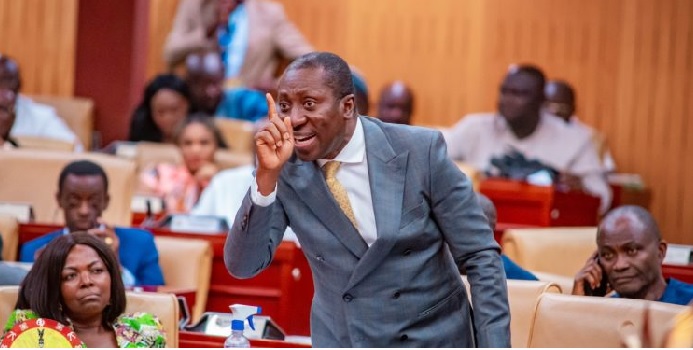
Afenyo-Markin vows to hold NDC accountable for tax reductions and economic reform promises
The Majority Leader in Parliament, Alexander Afenyo-Markin, has stated that the incoming National Democratic Congress (NDC) government will be closely monitored by the New Patriotic Party (NPP) regarding the party's promises on tax cuts and economic policies.
Speaking at the opening of Parliament, Afenyo-Markin congratulated the NDC on its victory in the 7 December elections, specifically President-elect John Dramani Mahama and the leadership of the NDC side.
However, he raised concerns about the NDC’s campaign pledges, particularly its promises to reduce taxes, repeal the e-levy and overhaul the tax system.
“While we welcome the NDC’s promises, especially the nkokɔ nketekete policy, we’re eager to see how they plan to balance these tax cuts with the financial needs of running the government,” Mr Afenyo-Markin said. “We’ll be watching closely and expect transparency and accountability in these policies.”
The Majority Leader also questioned the NDC’s commitment to reducing taxes at the ports and other economic interventions. He expressed doubts about how these promises could be funded without clear financial plans.
“The question remains: where will the money come from to implement these plans while maintaining fiscal responsibility?” he asked.
Mr Afenyo-Markin stressed that although the NPP had accepted its defeat, the party would continue to provide oversight in Parliament. He made it clear that the NPP would remain vigilant and ensure that the incoming government delivers on its promises to the people of Ghana.
“We’ll make sure that the promises made during the campaign are kept, and if they fall short, we’ll remind the government of the people’s expectations,” he added.
As Parliament reconvenes, the political landscape is changing, with the NDC now in the majority. Mr Afenyo-Markin’s comments highlight the ongoing rivalry between the two parties and set the stage for strong scrutiny of the NDC’s economic policies in the years to come.
